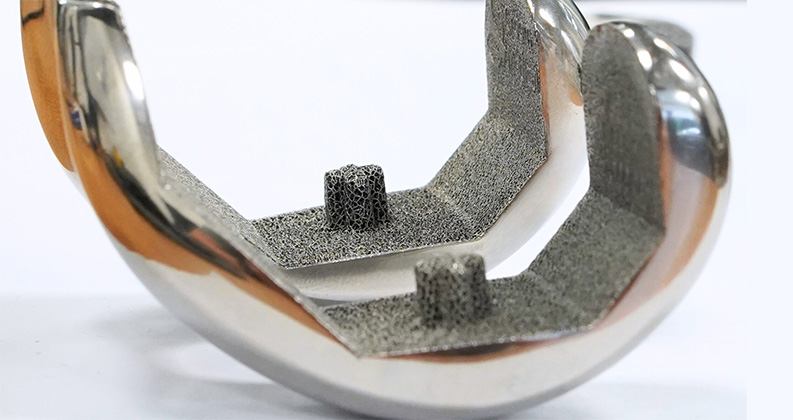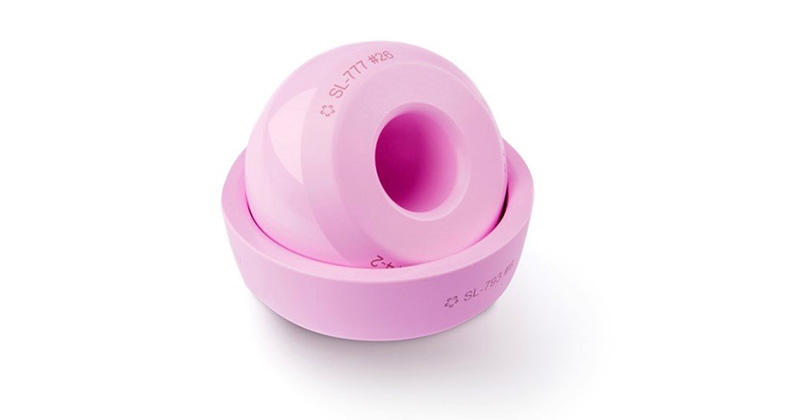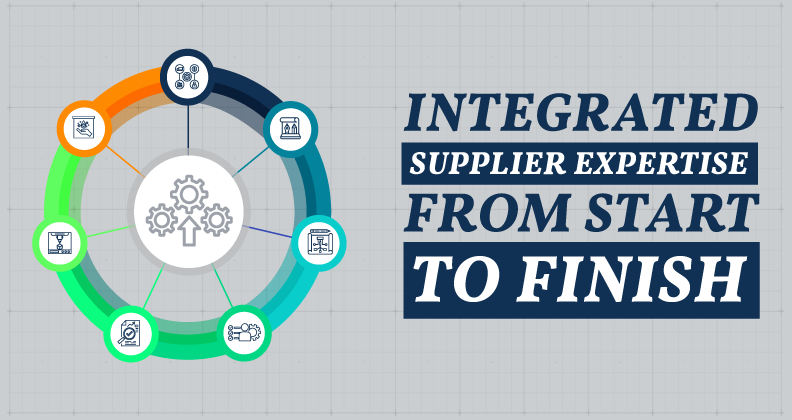
Croom Medical launched Biofuse, a 3D-printed porous ingrowth platform produced with Laser-Powder-Bed-Fusion (L-PBF) technology. Biofuse is now available through Croom Medical’s Additive Manufacturing offering, supporting projects from early design through to full-scale production.
Biofuse integrates fully interconnected porous architectures directly into implant geometries, giving OEMs precise control over pore size, porosity, and lattice gradients. By combining dense and porous regions in a single build, it enables tailored ingrowth conditions while streamlining production and preserving feature fidelity.
Unlike traditional surface treatments such as spray coating or laser texturing, which provide limited porosity, Biofuse forms its porous structures in-build across both surface and sub-surface regions. This eliminates delamination risks, removes coating and machining steps, and ensures structural integrity and consistent quality, even in complex geometries. The result is a more predictable path from design transfer through to validated production, helping OEMs accelerate development and deliver implants with enhanced performance.
Backed by peer-reviewed studies, patents, and ongoing R&D, Biofuse is underpinned by Croom Medical’s expertise in lattice design and material behaviour. OEMs can leverage this experience to replicate existing porous structures or explore new designs that improve fixation and manufacturability.
Sean McConnell, Engineering & NPI Manager at Croom Medical, said, “Embedding lattice structures directly into the build removes coating and machining steps. The result is a more predictable manufacturing process that consolidates production, preserves structural integrity, and helps OEMs bring implants to market faster.”
“With Biofuse, customers can design lattices to their exact requirements,” said Dr. Bryan Naab, Additive Lead at Croom Medical. “That might mean replicating a porous structure previously produced through coating methods, or proposing lattice characteristics. The flexibility of the platform gives OEMs confidence that their design intent can be realised consistently and in line with regulatory expectations.”
Source: Croom Medical
JAV
Julie A. Vetalice is ORTHOWORLD's Editorial Assistant. She has covered the orthopedic industry for over 20 years, having joined the company in 1999.




